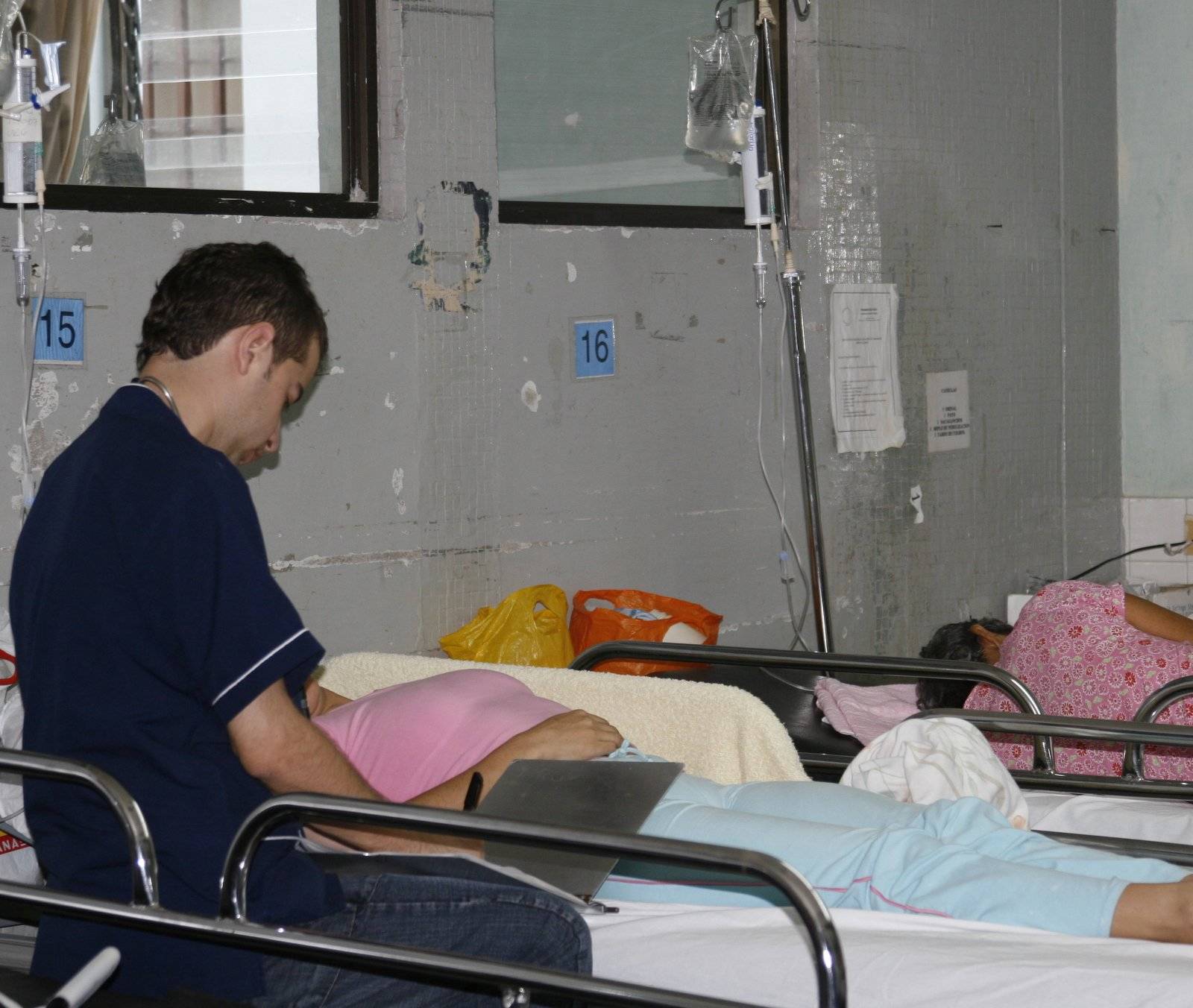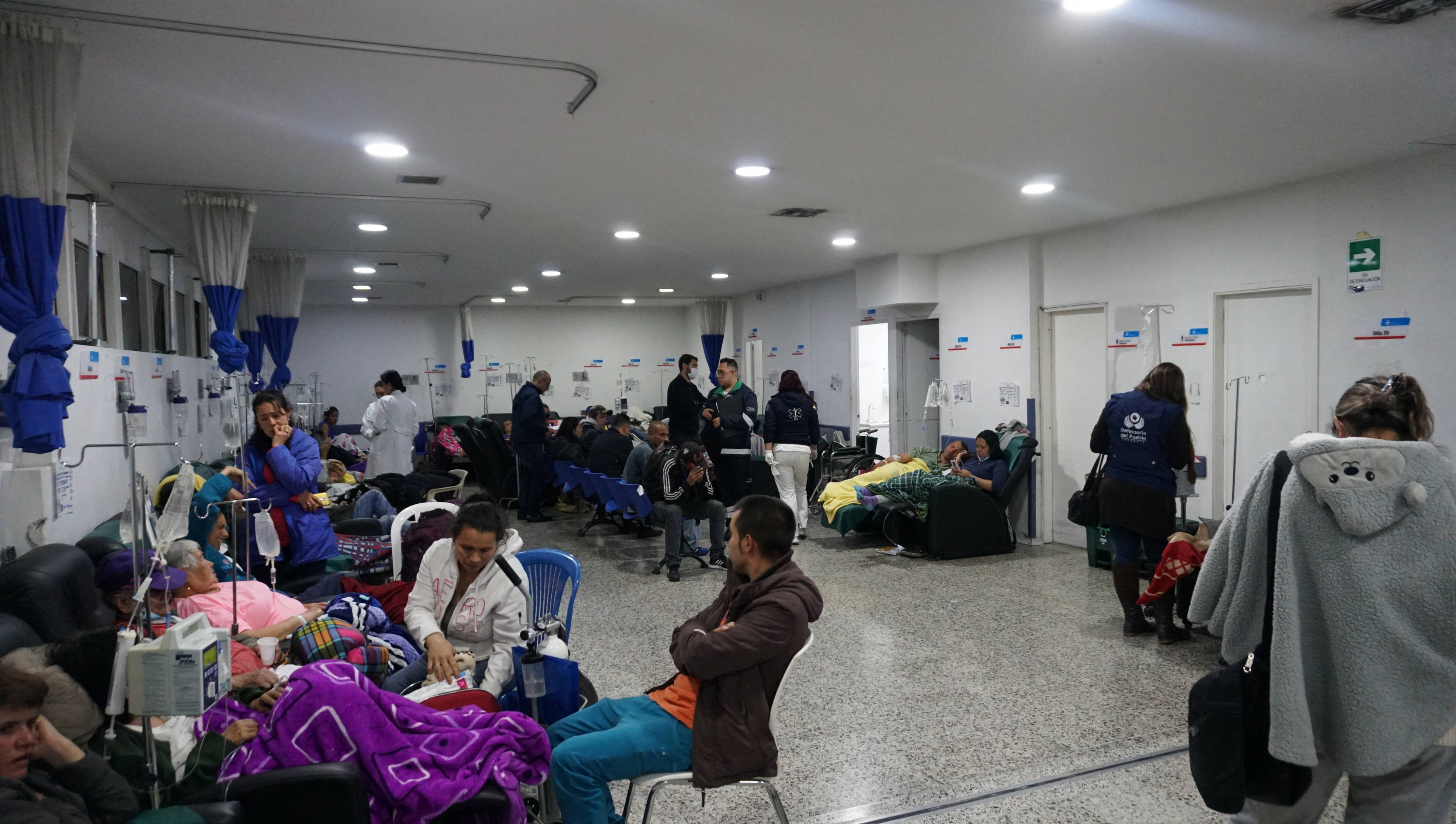Report warns of a worrying increase in dengue fever, yellow fever, and congenital syphilis, as well as failures in vaccination and maternal and child care.

Amid a financial crisis that has the health system on the ropes, the Así Vamos en Salud think tank presented its 2025 Annual Public Health Report on August 5. This analysis, based exclusively on official figures, offers an intersectoral and territorial analysis of the country's main health challenges.
"The document [...] offers a territorial and intersectoral perspective that allows us to understand the progress, gaps, and challenges of public health from a comprehensive and up-to-date perspective," the presentation statement emphasizes. Using an approach that recognizes the multiple social, economic, cultural, and environmental determinants of health in Colombia, the study structures its analysis around six priority areas and a cross-cutting chapter on community experiences.

The report emphasizes strengthening prevention, a territorial approach, and intersectoral management. Photo: Ronny Suárez - EL TIEMPO
In maternal and child health, indicators show progress over the past two decades. Perinatal and under-five mortality rates decreased by 56% and 50%, respectively, between 2005 and 2023, while child malnutrition fell from 14.87 to 8.78 cases per 100,000 children under five. However, gaps persist in departments such as La Guajira, "where malnutrition remains one of the leading causes of infant death."
The report also warns of a worrying upsurge in vector-borne diseases. In 2024, dengue reached its highest historical peak with more than 320,000 cases, nearly 3,000 of which were classified as severe, representing a 154% increase compared to 2023. Furthermore, in 2025, yellow fever led to the declaration of a public health emergency, with 93 cases and 37 deaths reported through June, especially in Tolima and Putumayo.
Regarding respiratory diseases, tuberculosis recorded 21,418 cases in 2024, 6% more than the previous year, while COVID-19 cases decreased significantly in 2025: 4,495 reports and 74 deaths by epidemiological week 28. The JN.1 variant remains the most prevalent.

Health problems must be understood from the perspective of social and environmental determinants, says the report. Photo: Private archive
Regarding waterborne and foodborne diseases, acute diarrheal disease in children under five years of age showed a slight decrease in 2024, although the trend is still uncertain due to preliminary data. Despite this, the report emphasizes that this event has decreased by 68% between 2005 and 2023.
Regarding sexually transmitted infections, the increase in HIV prevalence among young adults is worrying, as is the more than 9,840 cases of gestational and congenital syphilis recorded in 2024, a slight decrease compared to 2023. "However, current levels are still higher than those recorded in the pre-pandemic period, suggesting serious deficiencies in access to and management of prenatal care," the document highlights.
Vaccine-preventable diseases also raise concerns. In 2024, cervical cancer caused 1,954 deaths, despite being preventable through the HPV vaccine, whose coverage is only 60%, well below the 90% recommended by the WHO. Furthermore, follow-up for vaccines such as measles, rubella, whooping cough, and hepatitis B could not be carried out "due to a lack of information from the Ministry of Health and the National Institute of Health," the document warns.

Testimonies from leaders in Maicao, Soledad, and Sibundoy denounce failures in access and care. Photo: César Mateus - EL TIEMPO
The report concludes with a qualitative look at what it calls "between experience and evidence," which includes testimonies from community leaders in municipalities such as Soledad, Maicao, Sibundoy, and Ciénaga. These voices express how diseases are experienced and confronted from a territorial and cultural perspective, revealing a constant concern: "the insufficient and delayed institutional response, especially in rural and dispersed areas."
For Así Vamos en Salud, this document not only provides data, but also "offers a key tool for decision-making in public health" and reaffirms the need for a "more comprehensive, territorially sensitive, and socially determined system."
Environment and Health Journalist
eltiempo




